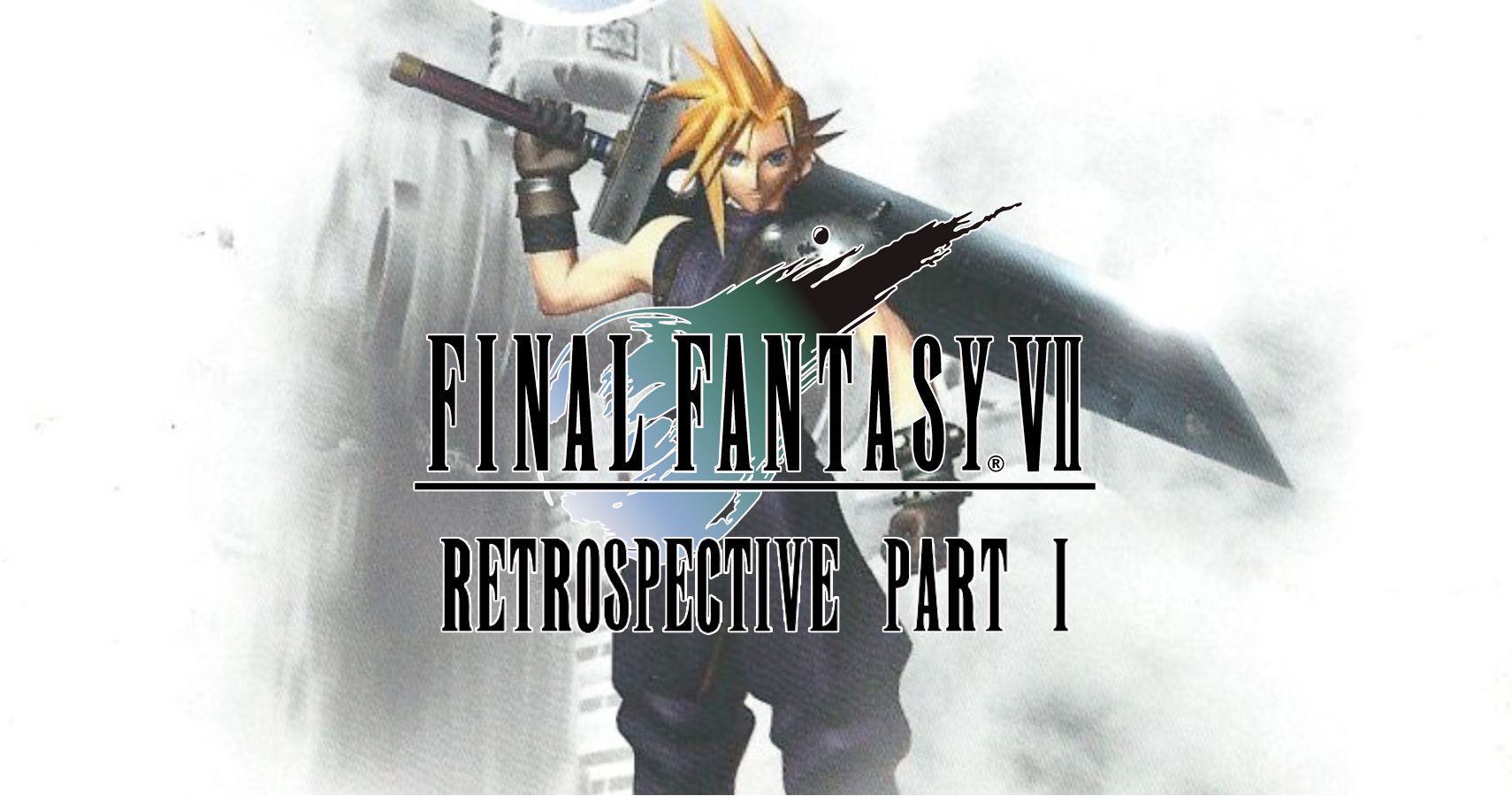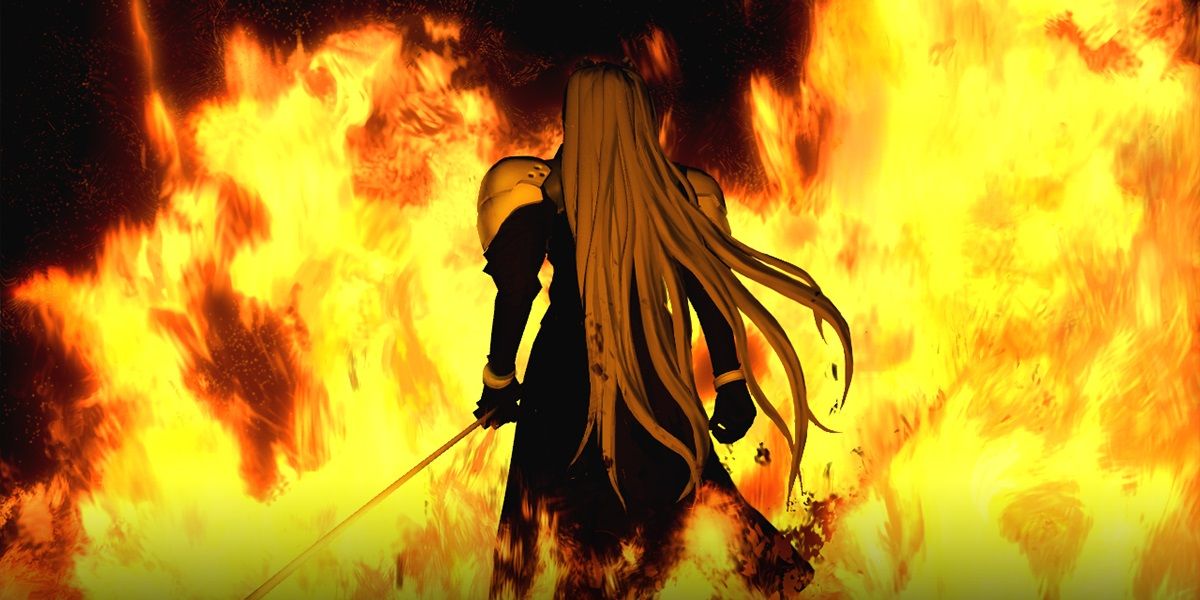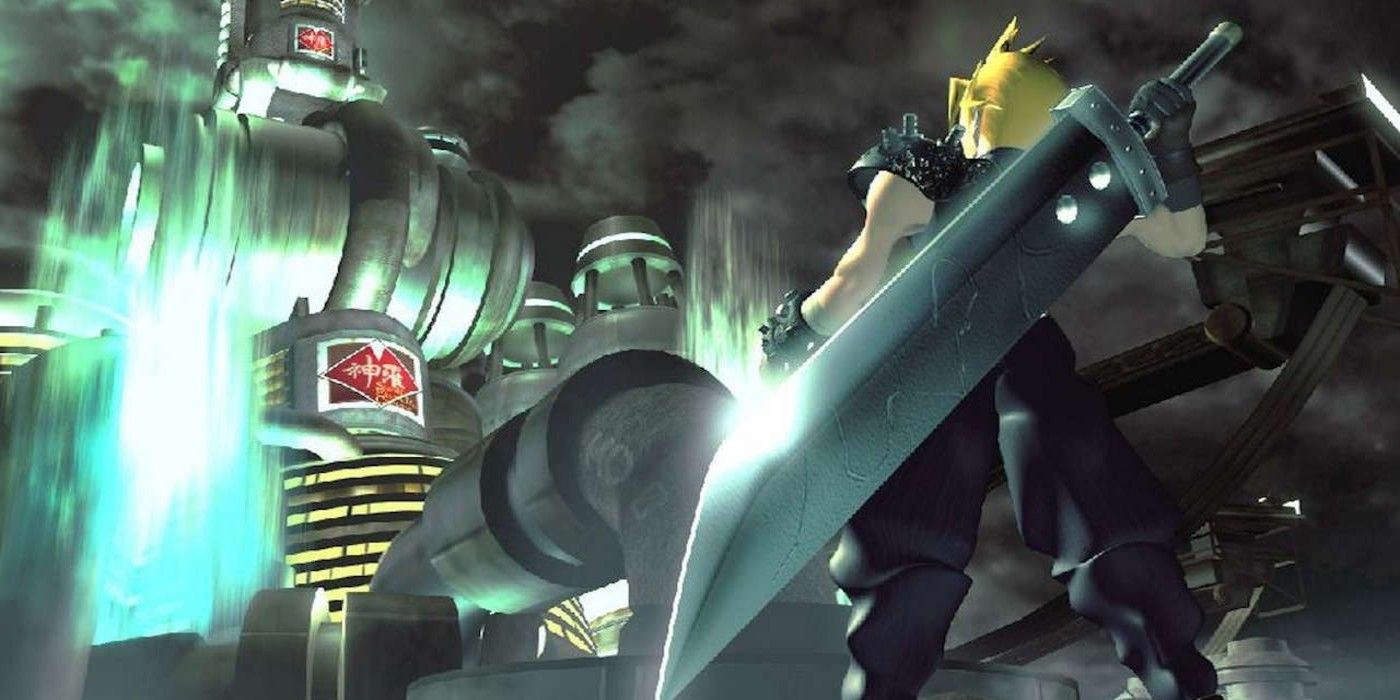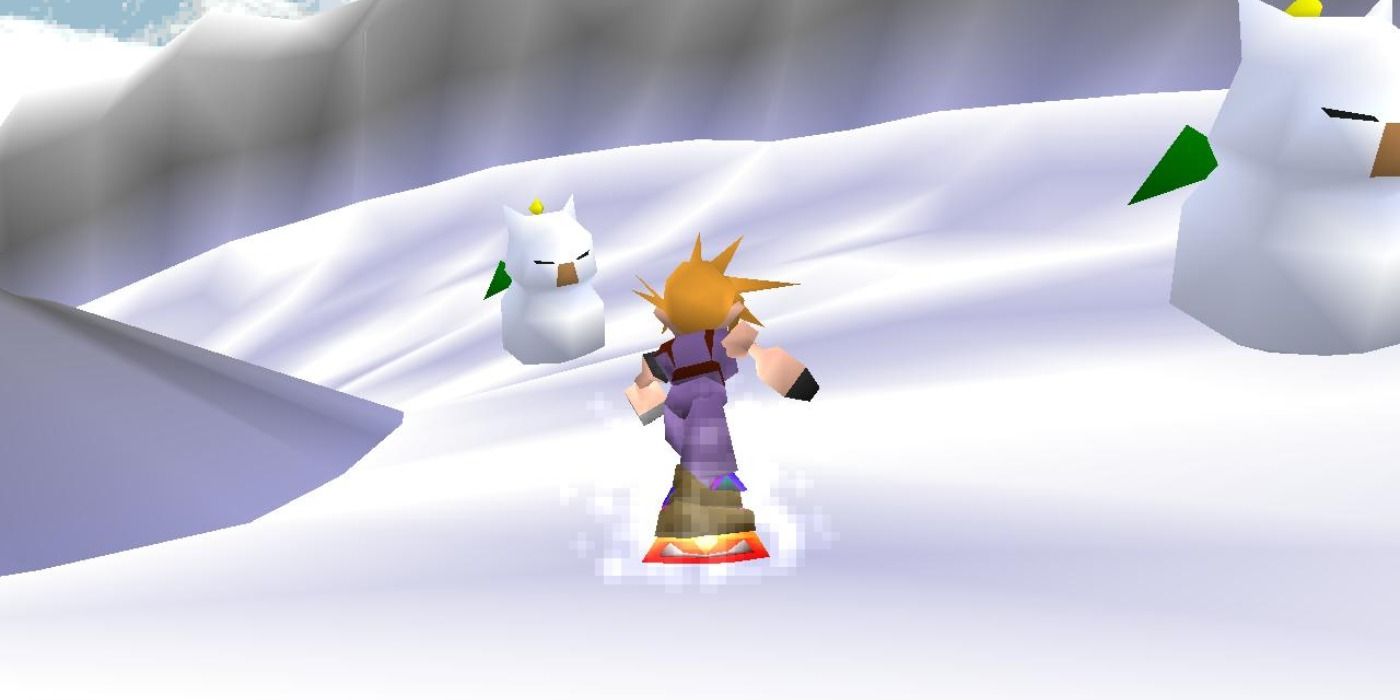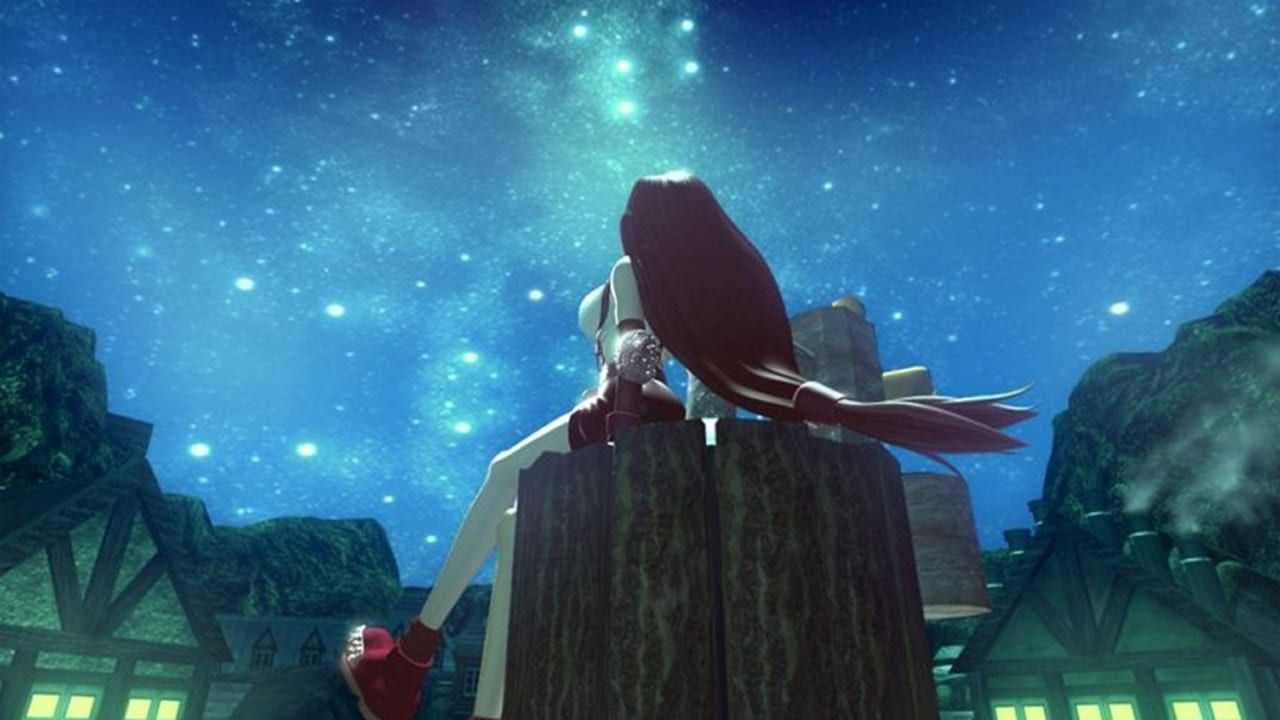The release of Final Fantasy VII Remake is almost upon us and the time has come to examine one of the most important video games in history before it's (potentially) supplanted by a new game. This article is the first in a series of retrospectives on the original Compilation of Final Fantasy VII, ranging from all of the games, movies, novels, and even the crossover appearances in other video games.
I played the original Final Fantasy VII in 1998 and to say it blew me away is an understatement. Final Fantasy VII was one of the most important games of my adolescence, as it felt like a gateway to an entirely new form of media. Final Fantasy VII was what got many into JRPGs, anime, manga, and even fan communities. Final Fantasy VII built up a huge online following in the early days of Internet forums.
Final Fantasy VII was released over twenty years ago and a lot has changed in the video game industry. This is going to be the first of two articles discussing Final Fantasy VII, with this one discussing how the gameplay, story, and visuals hold up when taken as a single package. The second article will focus on Final Fantasy VII's place in history and the elements of its story and gameplay that have aged poorly.
Characters & Story
Final Fantasy VII has its issues, but there is a reason why so many people still remember the characters and story so fondly. The game has some incredible locations and set pieces, with moments that have stuck in the minds of fans since the late '90s. There is a reason why the city of Midgar keeps cropping up in Final Fantasy crossovers and why the members of AVALANCHE are still so beloved.
Final Fantasy VII has themes relating to environmentalism and pollution, as well as death and coming to terms with loss. The former is told through the story of the Shinra Corporation using the literal life source of the planet as a cheap energy source, and how their attempts to take control of the world led to the whole mess involving Sephiroth, while the latter is told through the life and death of Aerith Gainsborough.
The executives of the Shinra Corporation are a refreshing change of pace from the antagonists of the previous games. Sephiroth, by comparison, is more in line with the older Final Fantasy villains in terms of motives, but he gets by on sheer coolness and relatability. The reason Sephiroth is more memorable than the likes of Golbez and Exdeath is that we get to see him before the fall and learn the reasons why he goes nuts. It's a shame that Sephiroth supplants the Shinra Corporation as the villains, as the environmental themes are forgotten about in the wake of the new cosmic threat, but the Shinra executives at least get one last chance to shine during the Huge Materia quest, before the awesome final dungeon and boss battles within the North Crater.
The other major theme of Final Fantasy VII involves death and coming to terms with loss, which is told through the story of Aerith. The demise of Aerith might be the most famous death in video game history, but that still doesn't diminish the effect that her absence has on the player. Final Fantasy VII does its best to make the player feel invested in the story of Aerith and her journey, all in the name of pulling the rug out from the player. The story of Aerith and the effect her absence has on the other characters is masterfully done.
The playable characters in Final Fantasy VII are more of a mixed bag. It was a mistake to make Yuffie and Vincent optional characters, as they have a diminished role in the game as a result, while Cait Sith is dreadful. Cid works mostly as a new incarnation of the other Cids, but it's hard to ignore his deplorable treatment of Shera. The game might have been better served by just keeping the Midgar crew throughout the story, but they are deep and likable enough to carry the story on their own.
The main storyline involving Cloud's memory is also a highlight of the game, as it encourages a second playthrough that fills in many of the details that the player wouldn't have noticed the first time around.
Graphics & Sound
Final Fantasy VII exists in a strange place in regards to its graphics. Squaresoft was still getting to grips with the new 3D hardware of the PlayStation, which is why the game uses a mixture of the chibi sprites and (comparatively) more realistically proportioned character models.
It's this mixture that has caused Final Fantasy VII to age so poorly in comparison to the other games in the series. In many ways, Final Fantasy VI looks far more impressive because it keeps a consistent aesthetic throughout the game. The cast of Final Fantasy VII go from chibi character models on the overworld maps, to action figures in the battle scenes and anime characters with exaggerated proportions in the cutscenes, all within the space of a few minutes. It felt like Squaresoft was throwing a lot of ideas at the wall in order to see what would stick.
Meanwhile, Final Fantasy VII's songs are just as incredible now as they were back then. The Final Fantasy VII soundtrack manages to capture the essence of the game in a way that few ever do, with tracks that tell you everything you need to know about its cities and characters without ever saying a word.
Gameplay
The gameplay of Final Fantasy VII is broken up into different sections. On the one hand, you have the excellent Materia system that allows for an incredible amount of customization, while on the other, you have a game that is mired in boring minigames.
Final Fantasy VII eschewed the character-specific abilities or character class systems from the previous games by tying commands to items, in this case, Materia. The player can equip Materia to different slots in their equipment, which limits the number of abilities they can bring into battle with them, while the ability to connect abilities together allows for all kinds of interesting combinations. The addition of the unique Limit Breaks helps to differentiate the characters from each other.
Final Fantasy VII can be frustrating to play during the scenes that don't involve battles or dialogue. Upon replaying Final Fantasy VII, I was shocked by how many of the dungeons in the game involve long ladder-climbing sessions, lengthy walkways, and cutscenes that show nothing but characters walking slowly across the screen. The fast-forward function of the remaster helps in this regard, but you really shouldn't have to keep resorting to increasing the speed to keep things moving at a decent pace.
Then you have the numerous minigames that make up most of the overworld sections. The motorcycle minigame is easily a highlight, but the rest are generally horrible. The placement of the snowboarding minigame is dreadful, as Cloud and his buddies decide to mourn the death of Aerith by hitting the slopes, while the submarine minigame is way too short. The chocobo breeding minigame is nothing but a chore that is purposely obtuse in order to sell strategy guides, the Fort Condor defense goes on forever but it is so easy that it's almost impossible to lose, and there are a number of boring games. I replayed Final Fantasy VII on Nintendo Switch and found myself reaching for the fast-forward button during all of these minigames, as they felt more like distractions and roadblocks than fun activities.
Does Final Fantasy VII Hold Up?
Final Fantasy VII has aged poorly in regards to its pacing, inconsistent art style, the pointless minigames, and some silly/distracting moments, but it's still an amazing game in its own right. The remaster helps to alleviate some of the more frustrating aspects of the game's old design, but it still has an amazing battle system, engaging characters and story, and one of the best soundtracks in video history. Final Fantasy VII still holds up after all of these years.
There is more to Final Fantasy VII than the experience of playing it as a game that was made in the '90s. There are a lot of elements of Final Fantasy VII that have not aged well in comparison to other games from that era and they also have to be examined when looking back at the game, but that will happen in part two of this retrospective.

